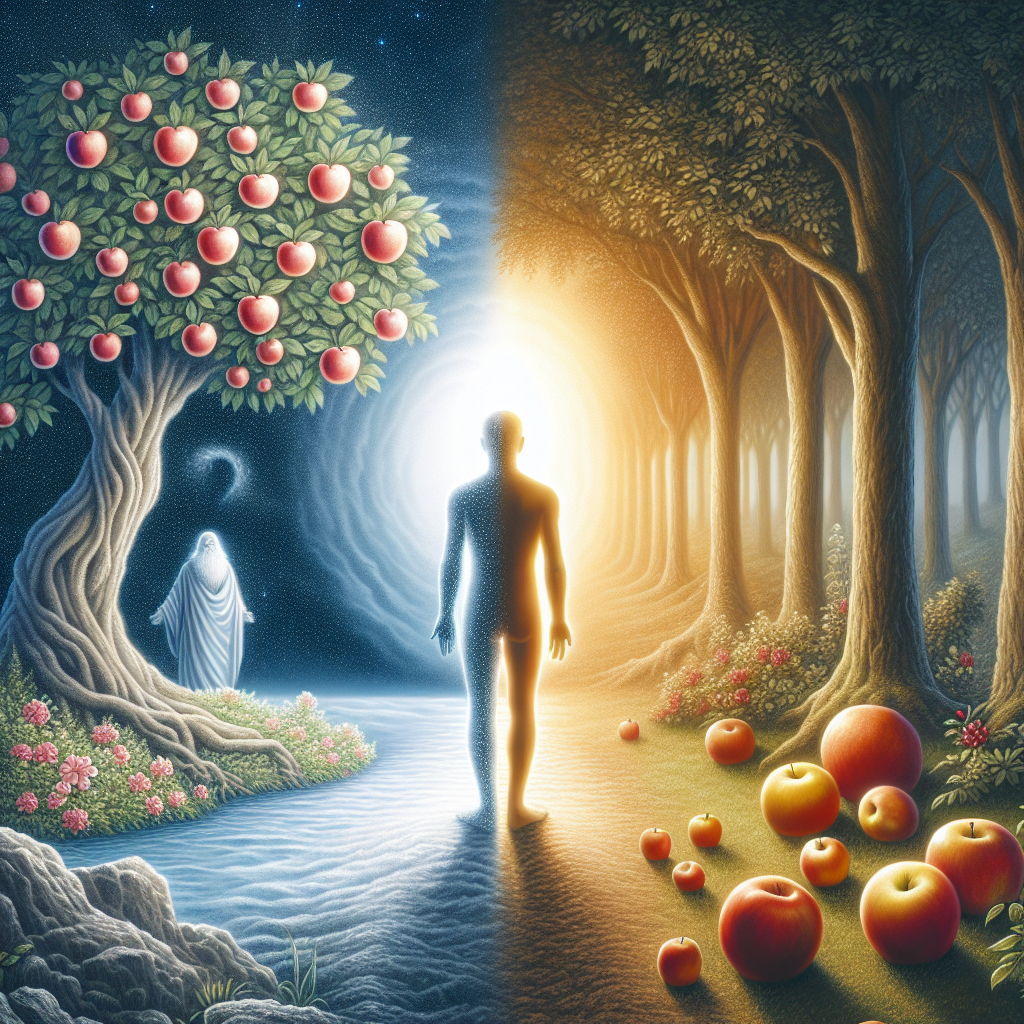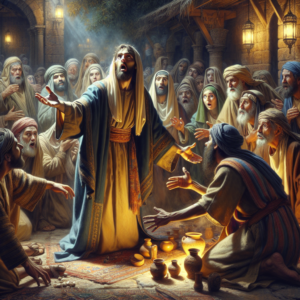Devotional: The First Adam and the Last Adam—A Journey Through Typology
Scripture:
"For as in Adam all die, so also in Christ shall all be made alive." – 1 Corinthians 15:22 (ESV)
Reflecting on Creation and Redemption
In the beginning, God created the first man, Adam, from the dust of the ground. He was perfect and placed in the idyllic Garden of Eden, blessed with a relationship with God unlike any other. However, Adam’s choice to disobey God introduced sin into the world, and thus death spread to all humanity through him (Romans 5:12). This moment marked the beginning of a fallen world.
Fast forward to the New Testament, where we encounter the Last Adam—Jesus Christ. Unlike the first Adam, who brought death, Jesus brings life. As Paul writes in 1 Corinthians, "For as in Adam all die, so also in Christ shall all be made alive." Herein lies a powerful typology that illuminates the grace woven throughout Scripture and reveals God’s redemptive plan for us.
Understanding the Typology
-
Contrast of Beginnings: The first Adam was a living being, but the Last Adam became a life-giving spirit (1 Corinthians 15:45). Through Adam, we receive a legacy of sin; through Christ, we receive a legacy of grace. The transition from death to life embodies the promise of hope we have as believers.
-
Failure vs. Fulfillment: Adam failed by choosing to listen to the serpent, which resulted in disobedience. Christ, our Last Adam, succeeded by being obedient unto death, even death on a cross (Philippians 2:8). This obedience not only fulfills the law but provides the path to reconciliation with God.
-
Life vs. Death: In Adam, we inherit a sinful nature leading to spiritual death. In Christ, we receive new life and the promise of eternal communion with our Creator. Each day offers us the choice to live through the empowerment of the Holy Spirit, shedding our old nature and embracing our identity in Christ.
How This Applies to Our Lives Today
Understanding the typology between the First and Last Adam is not merely theological; it is transformative for our daily living. Here’s how it applies:
-
Identity in Christ: Knowing that you are part of a new creation (2 Corinthians 5:17) allows you to discard feelings of inadequacy and shame that stem from Adam’s failure. You are no longer bound by sin; you are free to walk in the fullness of life that Jesus offers.
-
Daily Choices: Just as Adam faced choices in the Garden, we, too, encounter daily decisions that can lead us closer to God or further away. Today, you have the opportunity to choose life. Ask the Holy Spirit for guidance in your choices, embracing the obedient example set by Christ.
-
Sharing the Good News: The contrast between the First and Last Adam is a perfect illustration of the Gospel. As you share your faith, remember the hope conveyed through this typology. Encourage others to see that their past does not define them; rather, their present in Christ does.
Action Steps for Today
-
Reflect: Take a moment to meditate on your identity in Christ. Write down at least three aspects of your life that show how you’re living out your new identity.
-
Pray: Bring your daily choices before God. Ask for His wisdom in navigating life’s decisions so that you may reflect the character of Christ.
-
Share: Reach out to someone who feels weighed down by their past. Share the hope found in the Last Adam and the transformative power of Christ’s love.
-
Commit: Identify one area of your life where you can let go of Adam’s legacy. Make a plan to invite Christ into that situation and seek His life-giving presence.
Closing Prayer
Heavenly Father, thank You for sending Your Son, the Last Adam, to restore what was broken in the Garden. Help us to embody the hope of the Gospel in our lives and choices. Remind us of our identity in You and empower us to live as new creations. As we embrace our journey through life, may we be vessels of Your grace, sharing the light of Christ with others. In Jesus’ name, we pray. Amen.


